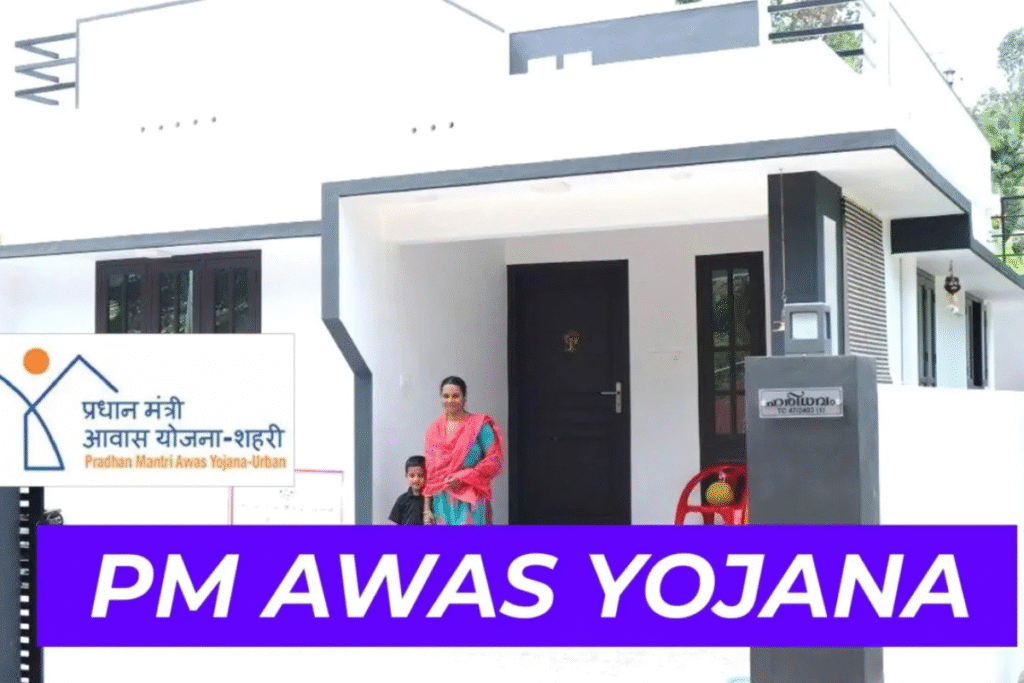In a significant push toward achieving the vision of “Housing for All,” the Indian government continues to advance the Pradhan Mantri Awas Yojana (PMAY), a flagship scheme launched in 2015 to provide affordable housing to the urban and rural poor. As of May 17, 2025, the program, encompassing both Pradhan Mantri Awas Yojana Gramin (PMAY-G) and its urban counterpart, has introduced fresh updates, extended deadlines, and innovative measures to ensure more families secure pucca homes. These developments, trending across social media platforms, news channels, and YouTube, highlight the scheme’s transformative impact on millions of lives.

Extended Deadlines and Enhanced Accessibility
The Pradhan Mantri Gramin Awas Yojana has been a lifeline for rural families, offering financial assistance to construct permanent homes with basic amenities. Recent announcements indicate that the government has extended the deadline for beneficiary surveys under PMAY-G to May 15, 2025, in several regions, allowing more eligible households to register. This extension aims to include families previously left out due to logistical challenges. The scheme provides up to ₹1.2 lakh in plain areas and ₹1.3 lakh in hilly or northeastern states, supplemented by additional funds for toilet construction through initiatives like Swachh Bharat Mission.
A notable update is the introduction of self-survey options in eight languages, including Hindi and Punjabi, making the process more inclusive. Beneficiaries can now check their status on the Pradhan Mantri Awas Yojana list through the official PMAY-G portal by selecting their state, district, block, and village. This digital empowerment has sparked widespread discussions online, with YouTube tutorials guiding applicants on navigating the portal seamlessly.

Empowering Women and Marginalized Communities
A key highlight of PMAY in 2025 is its focus on gender equity and inclusivity. In states like Uttar Pradesh, new rules mandate that houses under Pradhanmantri Aawas Yojana be registered in the name of female family members, ensuring 100% female ownership in rural areas. This move has been celebrated on social media as a step toward empowering women, with many calling it a game-changer for rural households. Priority is also given to marginalized groups, including unmarried women, widows, persons with disabilities, senior citizens, transgenders, and SC/ST communities, particularly under PMAY-Urban 2.0.
In urban areas, PMAY 2.0 offers financial aid of up to ₹2.5 lakh for low and middle-income families to build or purchase homes. The scheme targets families with annual incomes up to ₹9 lakh, making it accessible to a broader demographic. Social media posts have highlighted success stories, such as beneficiaries in Greater Noida receiving homes after streamlined application processes.

Regional Achievements and Challenges
The Pradhan Mantri Awas Yojana Gramin has seen remarkable progress in states like Madhya Pradesh, which secured the top spot nationally for rural housing implementation. Meanwhile, Karnataka is set to hand over 42,000 homes, each costing ₹7.5 lakh, with subsidies from both central and state governments. In Jammu and Kashmir’s Poonch district, over 46,800 houses have transformed lives, as shared by beneficiaries in viral videos circulating online.
However, challenges persist. Reports from Bihar indicate that some beneficiaries who received funds have not completed construction, prompting notices from authorities. Additionally, allegations of favoritism and bribery in certain regions have surfaced, with two officials in Haryana recently arrested for demanding bribes to process PMAY applications. These issues have fueled debates on news channels, urging stricter oversight to ensure transparency.

Boosting Rural Economy and Infrastructure
The PMAY-G’s accelerated implementation is expected to drive rural economic growth. Analysts predict a 6.5-7.5% rise in cement demand this fiscal year, fueled by increased construction under the scheme. Rising rural wages, up by 25% in 2025, further support this momentum, enabling beneficiaries to contribute to local economies. Social media influencers have emphasized how PMAY-G homes, often equipped with solar systems in states like Maharashtra, promote sustainable living.

How to Apply and Check Status
For those eager to benefit from Pradhan Mantri Awas Yojana, the application process is straightforward. Rural applicants can register via the Awas Plus portal, while urban applicants can apply through designated banks or online platforms. To check the Pradhan Mantri Awas Yojana list, visit the official PMAY website, enter the required details, and submit the captcha code. YouTube channels dedicated to government schemes offer step-by-step guides, making the process accessible even to first-time users.
A Vision for the Future
As the Pradhan Mantri Awas Yojana progresses toward its 2025 goals, the scheme remains a cornerstone of India’s inclusive development agenda. With extended deadlines, women-centric policies, and digital innovations, PMAY is not just building houses but fostering dignity and hope. As discussions trend across platforms, the nation watches eagerly to see how this transformative initiative continues to reshape lives.
Also Read
I am a passionate digital marketer, content writer, and blogger. With years of experience in crafting compelling content and driving digital strategies. I’m always exploring new trends, optimizing strategies, and creating content that resonates with audiences. When I’m not working, you’ll find me diving into the latest digital marketing insights or experimenting with new blogging ideas.